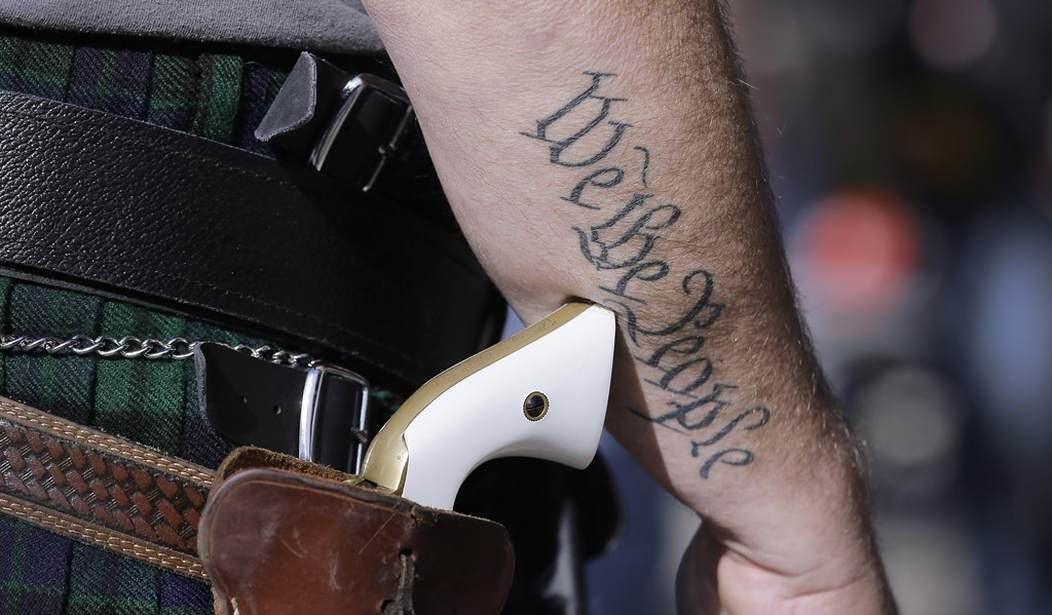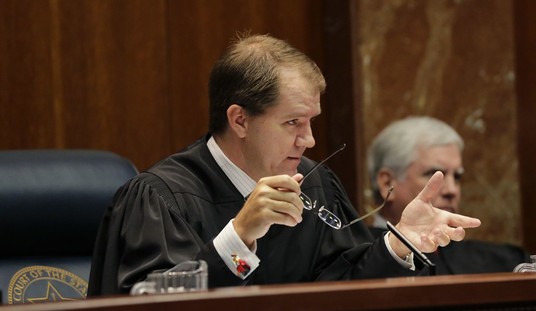St. Paul and more than a dozen other municipalities across Minnesota are looking to enact local ordinances banning the possession of so-called assault weapons and large capacity magazines in response to the shooting at Annunciation Church in Minneapolis in late August. The problem for these cities is that Minnesota has a firearms preemption law in place, and it's up to the state legislature to adopt any gun control meaures.
As I wrote about earlier today, the Minnesota Gun Owners Caucus has already said it will sue St. Paul and any other jurisdiction that flagrantly violates the preemption statute, but St. Paul officials are claiming that their ordinances are on solid legal ground because they contain so-called "trigger" language, meaning they can only take effect once the legislature has repealed preemption.
“While much has been said about them being preempted by state law, from us being able to enforce them right now, one of the things that we’re fighting for is the lifting of that preemption,” the mayor said.
“If and when” that happens, [Mayor Melvin] Carter added, “that won’t be time for us to start thinking about maybe drafting and having some public hearings about moving our way towards an ordinance. That’ll be time for a St. Paul ordinance to take effect immediately.”
Jennifer Lor, Carter’s press secretary, said Wednesday there’s no case law that prohibits what the city is proposing.
“Furthermore, contingent laws are often put in place and have gone into effect all over the country,” she said. “For example, several states have enacted contingent laws to ban abortion that were, when enacted, in direct violation of Roe v. Wade.”
Carter's first statement is really important. Does he want the state to ban so-called assault weapons and "large capacity" magazines? You bet, but he also wants the ability to propose and pass any local gun control measure he likes, no matter how extreme it might be. Even though Carter claims his proposed ordinance will withstand a court challenge, he's well aware of the political theater he's engaging in.
While Carter and Lor's comments may pass muster with an uncritical media, MN Gun Owners Law Center Rob Doar utterly annihilated their claims in a post on X on Thursday afternoon.
Judicial Review Isn’t the Same as State Preemption
— Rob Doar (@robdoar) October 23, 2025
Some have argued that cities can pass gun ordinances now—despite state law forbidding it—just as states passed “trigger” laws on abortion to take effect if Roe v. Wade were overturned.
That comparison misunderstands two very…
Doar pointed out that state preemption is an "exercise of legislative power, not judicial restraint."
It is the state’s explicit command that local governments cannot legislate in a given area at all. Minnesota’s preemption statute, Minn. Stat. § 471.633, could not be clearer: “The legislature preempts all authority of a home rule charter or statutory city … to regulate firearms, ammunition, or their respective components.” That is an express prohibition—a denial of authority, not a green light as long as they delay enforcement. So while “trigger laws” reflect a state’s own deferred choice to act under its sovereign power, a preemption statute is the sovereign’s instruction that subordinate units lack that power altogether. When a city enacts an ordinance in a preempted field, it is void from inception—not waiting to be “triggered” by future judicial change.
Doar goes on to note that Minnesota courts have long recognized this reality, including in a 2018 called Jennissen v. City of Bloomington, where the Minnesota Supreme Court held that "cities have no power to regulate in a manner that conflicts with state law or invades subjects that have been preempted by state law.”
I thought there was a chance these ordinances might be able to remain in place so long as they were never enforced, but Doar has disabused me of that notion. It's too bad that officials in St. Paul are still clinging to the idea that they can get around Minnesota's preemption law, but if St. Paul's city council and mayor do end up adopting their gun control ordinances, it won't be long before the MN Gun Owners Law Center and the MN Gun Owners Caucus are able to provide additional lessons in a courtroom.









